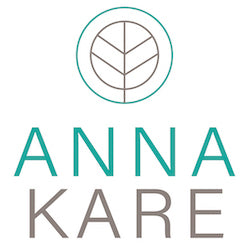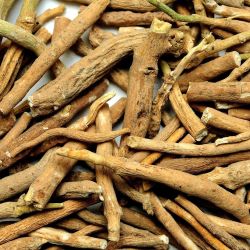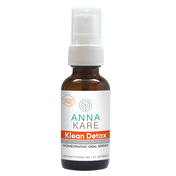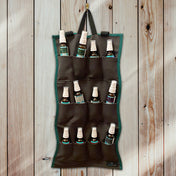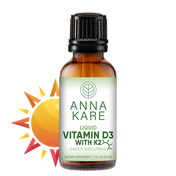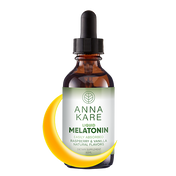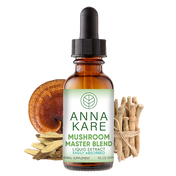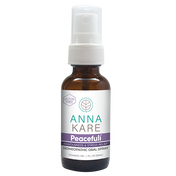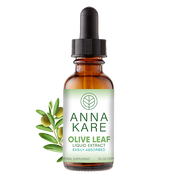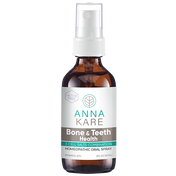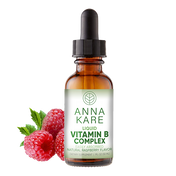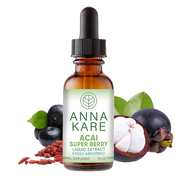Our bodies produce vitamin D naturally with exposure to the sun. However, during the winter it is hard to catch enough sunshine. And as UV radiation has been increasing over the last several decades, sun safety habits are highly encouraged during the warmer months and year-round. As a result, many people may not be generating adequate amounts of vitamin D.
Studies show, 1 billion people worldwide are vitamin D deficient. In the United States, approximately 42% of adults have a deficiency. If you are vegan, vegetarian, of darker skin, 65 years of age or older, or have excess weight, your risk for developing a deficiency is even higher. This is why doctors and natural health practitioners are recommending taking a high-quality vitamin D supplement.
with MCT Oil
But how do you know if you are deficient? And if you are, how much and which vitamin D supplements should you be taking? What are other natural ways to increase your vitamin D levels that can be combined with a highly absorbable vitamin D supplement?
In this post, we’ll examine vitamin D, the benefits it gives to your wellness, and how you can add it to your diet.
What is Vitamin D?
Also called the sunshine vitamin, vitamin D is a vital micronutrient that plays an important role in fighting bone loss or osteoporosis, muscle weakness, a sluggish immune system, and low energy. A broad list of vitamin D benefits includes but is not limited to supporting the following essential body functions and processes:
- Healthy bones and teeth
- Calcium, phosphate, and magnesium absorption
- Muscle strength
- Strong immunity
- Vitality and energy
- Especially important for growing kids
- Nervous system health
- Good mood
Ways to Get the Vitamin D Your Body Needs
While the primary way to get enough vitamin D is sun exposure, it is also found in certain foods and can be taken as a supplement.
1. Sun Exposure
Researchers suggest you may only need 10 minutes per day of sun exposure during the summer, but upwards of 130 minutes per day during the winter months. (1)
To get vitamin D safely from the sun, it is recommended to enjoy some sun regularly but only for short periods of time and not too often. Try to spend 10 to 15 minutes outside a few times each week before 10:00 am and after 2:00 pm. Do protect your skin, especially the head, face, and neck.
Sun exposure alone will not help your body generate all the vitamin D it needs. It is ideal to combine a healthy outdoor routine with foods that contain vitamin D and with a quality supplement.
2. Foods Rich in Vitamin D
Vitamin D can be obtained from a variety of fish such as cod, herring, mackerel, salmon, tuna, and sardines. And it is contained in egg yolks, mushrooms, and foods fortified with vitamin D such as many forms of milk, yogurt, and breakfast cereal.
If you are looking for more non-meat food options, consider making your own vitamin D-enriched mushrooms by placing mushrooms in the sunlight. On a sunny day, sun-dry your shitake, button, maitake, or any variety of mushroom species by placing them in a sunny spot in your home like on a windowsill. Then enjoy them immediately or keep them in a sealed container and store them in your fridge or freezer. (2)
3. Vitamin D Supplements
Vitamin D3 is known to be more effective than vitamin D2. It is the same vitamin D that is produced by your skin, raises your vitamin D levels for longer periods of time, and is more stable. The body also assimilates vitamin D3 more easily.
At AnnaKare, our natural health experts recommend taking vitamins in liquid form. Liquid vitamins are absorbed better and faster. They are taken in by your mucous membranes and not in the stomach via the digestive process. They are easy to take, allow you to adjust the dosage, and are clean supplements with transparent ingredients.
Because they don’t come in the form of a capsule or tablet, they can focus on the vitamin content and have only a minimum of inactive ingredients such as pure water, vegetable glycerin, or – as is the case with our Liquid Vitamin D3 – MTC oil.
Our vegetarian Annakare Liquid Vitamin D3 contains 2000 IU of vitamin D3 in just 5 little drops. Formulated by our master herbalist and vitamin authority with 40+ years of experience, its base of MTC oil allows it to be preservative free. It has a pleasant light lemony taste and can be taken directly in the mouth, from a teaspoon, or added to your favorite juice or other healthy drink.
with MCT Oil
Vitamin D is fat soluble, meaning it requires fat to be properly dissolved and assimilated by the body. That is why taking a vitamin D supplement with MTC oil is a great idea. You may also consider taking it with a healthy breakfast that includes avocados, nuts, seeds, dairy, and eggs.
How Much Vitamin D Should I Take?
Current US guidelines suggest consuming 600 IU (15 mcg) from age 1 to 70 and 800 IU (20 mcg) over age 70 daily, but more may be needed with people susceptible to deficiencies and those who lack sun exposure. (3)
An international unit or IU is a unit of measurement that determines how much that vitamin will make a difference to your body. It is commonly used to measure fat-soluble vitamins. One thousand to 2,000 IU of vitamin D per day for adults are safe and can help reach adequate vitamin D levels according to the Mayo Clinic. (4)
To measure the amount of vitamin D in your blood, it is best to visit your health care provider and get tested. Once known, you can determine the boost you will need and work with your provider to determine a path to reach and maintain healthy levels.
If you are severely deficient, your doctor may choose to boost your supplementation for 8 weeks with 6,000 IU daily or an equivalent of about 50,000 IU weekly. After this time, and when your levels are normalized, you will switch to a daily dose of 1000 to 2000 IU.
Should you fall into a higher-risk category, you may be recommended a daily dose of 10, 000 IU daily until your levels have been upped to where they should be. (5)
Children should also be tested and guided in taking Vitamin D to achieve healthy levels.
When using a liquid vitamin, you can adjust the dose to your need and to the need of each family member. One drop of AnnaKare Liquid Vitamin D3 contains 400 IU which is an often-recommended dose for children. Five drops contain 2000 IU, a good daily amount for adults. One dropper bottle contains 885 drops which make up to 175 adult doses, a daily supply that will last you for 6 months.
You can also use our liquid vitamin D to temporarily increase your vitamin D intake. But remember that higher doses, especially mega-doses which consist of 50,000+ IU per week, are used for severe deficiencies, thus should not be used long-term. Consult closely with your doctor if you are taking high doses of vitamins and before giving vitamins to your child.
Bone & Teeth Health Cell Salts + Liquid Vitamin D3 Bundle
Are you familiar with Schuessler tissue salts? They are homeopathic mineral combinations, also called cell salts, discovered in the second half of the 19th century in Germany when improved microscopes helped scientists study human cells in more detail and when Dr. Schuessler began to draw attention to minerals and their importance for cellular health.
Dr. Schuessler was the first physician identifying 12 essential mineral compounds in the human body. Three of them – Calcium Fluoricum, Calcium Phosphate, and Silica – are important for bone and teeth health. Cell salts come in small doses which go to work in and around cells, do not cause side effects that are often connected with regular mineral supplements, and help increase the absorption and deployment of minerals and vitamins such as vitamin D, calcium, and phosphorus from our food and from supplements.
We have bundled 3 Bone & Teeth Health Cell Salts + Liquid Vitamin D3 to offer a beautiful natural way to absorb more Vitamin D and other vital nutrients, help counteract bone loss, remineralize teeth, help to rebuild bone density, and benefit for more wellness benefits. Plus, Silica naturally helps boost collagen production!
Immunity Bundle with Liquid Vitamin D and Herbal and Homeopathic Antivirals
If you’re someone who constantly finds themself getting sick, you may need Vitamin D and natural antivirals. Low vitamin D levels have been long associated with being more susceptible to colds and flu. Now you can give your immune system an extra boost with AnnaKare’s holistic Immunity Bundle.
The bundle includes Vitamin D, Elderberry Liquid Extract, and Virus Defense.
Elderberry Liquid Extract is an herbal remedy that has been used for thousands of years to support healthy immunity. It’s a great addition during seasonal transitions, when fighting off a cold or the flu, and post-sickness to help rebuild your immune system. It also helps reduce seasonal allergies.
Virus Defense is our AnnaKare remedy for flu and other viral infections that was formulated by our homeopaths and naturopaths during the pandemic. It helps relieve fever, body aches, respiratory infections, and overtiredness and can also be taken on a regular basis during the flu season to increase your body’s resistance against viruses.
The three remedies make excellent winter companions and help you enjoy the cooler season in and out of doors.
Sunshine Smoothie Recipe with Liquid Vitamin D

When it’s gray outside, brighten your morning with this delicious and nutritious citrus smoothie and maintain your vitamin D levels from the inside out. This recipe includes 1 dose of AnnaKare Liquid Vitamin D3.
Note: You can add liquid vitamins from Annakare to a variety of non-heated liquid recipes. Follow daily dosage guidelines and enjoy your vitamins in the form of a healthy drink.
Ingredients:
4 clementines
½ cup of milk of your choice
½ cup of water
1 frozen banana
¼ tsp of vanilla extract
5 drops of AnnaKare Liquid Vitamin D3
Instructions:
Combine all ingredients in a high-powered blender. Blend on high speed for about one minute. Enjoy!
References:
1. Whitaker, A. (2021). Exactly How Much Sun do We Need to be Healthy?
2. Stamets, P. (2012). Place Mushrooms in Sunlight to Get Your Vitamin D
3. Adams-Kaplan, J. (2021), Can You Over-Do Vitamin D?
4. Torborg, Liza (2017), How Much Vitamin D Do I Need?
5. Sizar, Omeed; Khare, Swapnil; Goyal, Amandeep; Givler, Amy (2023), Vitamin D Deficiency
Content and product descriptions are grounded in natural wellness practice. They have not been evaluated by the Food and Drug Administration.







